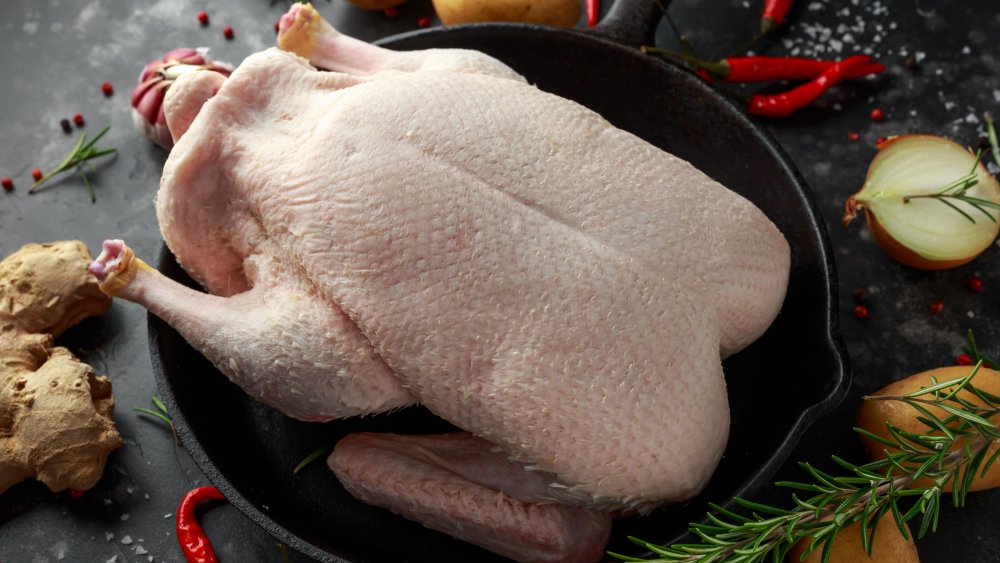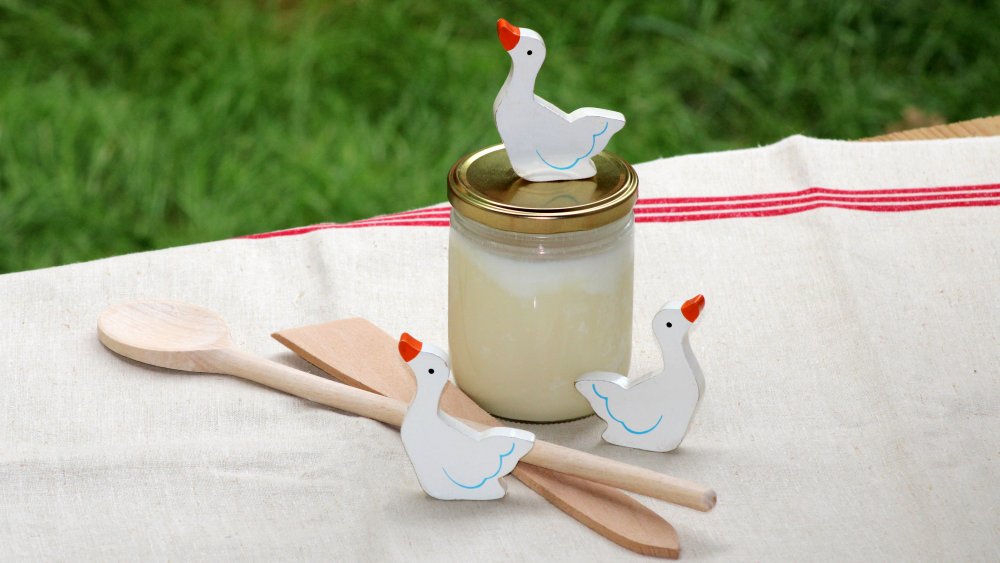This Is The Proper Way To Render Duck Fat
If rendering your own fat seems like more trouble than it's worth, you've definitely never cooked with duck fat. This silky fat adds a rich, savory flavor to anything cooked in it (via Bon Appetit). Not only that, but duck fat is great for roasting, searing, and frying thanks to its low melting point and ability to be heated at high temperatures without burning (via The Spruce Eats). Once you have a jar of this sumptuous fat in the fridge, you'll find yourself adding it to everything, from soups to sprouts to grilled cheese (via Thrive Market).
You can buy it online from D'artagnan, but it's much more cost-effective to make it yourself. All you'll need is some duck. A whole bird will make a whole lot of duck fat, but even just the breasts and legs should render enough fat to at least whip up some roast potatoes (not to mention all the tasty chicken skin bits left behind by the rendering process).
How to render duck fat perfectly every time
The rendering process is actually much simpler than you might think. Start by cutting the skin and fat from the bird and chopping it up. Then, place all of the fat and skin in a heavy-bottomed stainless steel saucepan with 1/2 cup of cold water and bring the mixture to a simmer. The water keeps the duck pieces from burning on the bottom of the pot (via Serious Eats). Press on the pieces with the back of a spoon from time to time (via Bon Appetit). Continue to let the mixture simmer until all the water has evaporated, then strain the liquid fat through a fine sieve or cheesecloth into a clean bowl to remove the remaining solids (but don't throw them away if you're a fan of crispy duck skin!).
Next, wipe out the saucepan thoroughly before returning the duck fat to it and bringing the fat back to a boil for a few minutes. Leave the saucepan uncovered to allow any remaining water to evaporate. The whole process should take between 45 minutes and 1 hour. Then strain the fat through a cheesecloth a second time before transferring to a sterilized jar. Store your duck fat in the refrigerator for a few weeks or in the freezer for a few months, and watch it upgrade your go-to recipes.

